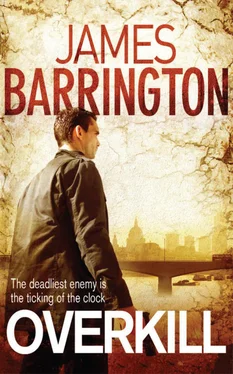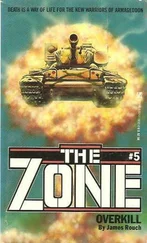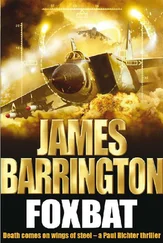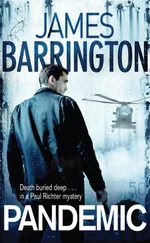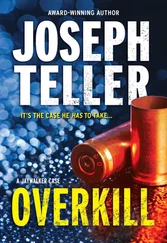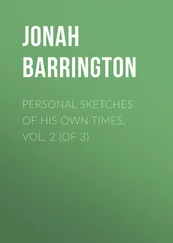Modin nodded again. ‘I know. It’s just that sometimes I wonder if we’re right – even if he’s right.’
‘Whatever our personal feelings,’ Bykov said, ‘whatever our private doubts, we’ve gone too far now to stop it. We have to carry it through to the end. We have no choice, no choice at all. What we’re doing is for the good of Russia, for the good of all Russians.’
Good old Bykov, Nicolai Modin thought to himself. You could always rely on him to quote the party line. He stood up and walked to the window and stared through the bullet-proof glass across Lubyanskaya ploshchad. Early-morning Moscow was quiet, with little traffic and fewer pedestrians. He looked with a sense of sadness towards the centre of the square where, until the madness of glasnost, the bronze statue of the founder of the Cheka , ‘Iron’ Feliks Dzerzhinsky, erected by Khrushchev as a tribute to the KGB, had stared with sightless eyes down what was then known as Marx prospekt towards ploshchad Revoljucii – Revolution Square. They had been better days, but there was, perhaps, just a hope – Modin put it no higher – that they would return, if the project succeeded. Modin squared his shoulders, wheeled round and strode briskly back to the desk, his uncertainty gone. ‘He’d better be right. You do realize what this means, don’t you?’
Bykov, who was reading through the notes on the clipboard, looked up and nodded. ‘Yes,’ he said. ‘It means that the British don’t know, so they can’t have told the Americans.’
Thursday
Pechora LPAR, Komi District, Confederation of Independent States
‘Colonel!’ The urgent note in the young officer’s voice brought Vitali Yazov across the darkened room at speed.
‘Yes, Captain? What is it?’ Colonel Yazov asked, leaning over the younger man’s shoulder and looking at the displays.
Captain Kryuchkov shook his head. ‘It’s gone again, sir. A solid but intermittent contact, at high level – not a satellite or debris, as far as I can tell.’
‘From which direction, and what range?’ Yazov asked.
The captain pointed at his screen. ‘There, sir. Almost due north and about five hundred miles out, closing rapidly.’ Kryuchkov had inserted five electronic markers into his azimuth display, each corresponding to a single contact detected by the LPAR. Each marker showed the time the object was detected, and its estimated height, speed and heading.
The Large Phased-Array Radar, NATO reporting name Hen House, is designed for ballistic missile detection, satellite tracking and battle management. On the northern Russian border LPARs are positioned at Mukachevo, Baranovichi, Skrunda and Murmansk as well as Pechora. The LPAR is configured to look high, for satellites and intercontinental ballistic missiles, and outwards from Russian territory, and the contact was only being intermittently detected by its lowest lobes.
Colonel Yazov scratched the back of his neck thoughtfully. ‘First contact over the Kara Sea,’ he murmured, ‘and tracking south.’ He leaned closer and looked carefully at the calculated speed and estimated height of the unknown return, based upon which lobes of the LPAR had been penetrated. ‘At Mach three and above seventy thousand feet.’
He straightened up, gestured at the LPAR display and issued his instructions. ‘Record any other contacts with that object. Designate it Hostile One and get me a predicted track across the whole country, immediately. I’m going to talk to Moscow.’
The captain turned round in his seat, surprised. ‘Do you know what it is?’ he asked.
Yazov nodded. ‘Yes. At least, I think I do. But it doesn’t make any sense.’
British Embassy, Sofiyskaya naberezhnaya 14, Moscow
‘I’m sorry, Mr Willis, but I really don’t see what you’re doing here. I can assure you that the Embassy staff are more than capable of handling matters at this end.’
The man in the crumpled suit looked across the desk. Diplomats were not his favourite people, and diplomats who thought that their abilities were being called into question were even more touchy than usual. He ran a hand through his unruly fair hair and tried again.
‘I assure you, Secretary Horne, nobody is suggesting that your Embassy staff are in any way lacking. I’m here for just three reasons. I have to ensure that the body of Mr Newman is returned as rapidly as possible to Britain. I’ve also been asked to collect some of Mr Newman’s personal effects for his family, but the main reason I’m in Moscow is to carry out an initial investigation into the circumstances of the accident.’ He drew a breath and held up his hand to forestall any protest. ‘There could be some international repercussions, depending on the degree of culpability of the Russian driver. My company won’t be prepared to make any settlement until this unfortunate accident has been thoroughly investigated.’
William Horne, First Secretary to Her Britannic Majesty’s Ambassador to Russia and the Commonwealth of Independent States, looked across his polished oak desk, then back to the letter of introduction he had been given some fifteen minutes earlier. Horne was tall and thin, and a well-preserved fifty-five. A career diplomat, with a fastidious approach to life and total dedication to his work, he was expecting an ambassadorial appointment the following year. He was keen to ensure the smooth running of the Embassy, and he didn’t like uninvited visitors poking their noses into things that were none of their concern. The man Willis, he was sure, was trouble of some kind – he had a quality of stillness and menace that Horne found quite unnerving – but he couldn’t think of a valid reason for having him thrown out. His instinct, however, was perfectly correct.
The man calling himself Willis, whose real name was Paul Richter, knew absolutely nothing about insurance and cared less. He sat patiently, saying nothing, and looking at Horne with disinterest. Richter was conscious of his somewhat crumpled clothing, the result of hasty packing and a long flight in economy class, which Horne’s professional elegance threw into sharp contrast. Richter had never been concerned with appearances – his or anyone else’s – and Horne’s immaculate suit and mirror-polished shoes amused, rather than impressed, him. While serving as an officer in the Royal Navy, Richter had once, and with a certain amount of truth, been described as looking like a badly packed parachute.
Horne removed rimless spectacles from his large and slightly hooked nose and absent-mindedly began polishing the lenses with a spotless white handkerchief. Replacing the glasses, he looked across the desk again and pursed his thin lips. ‘It is most irregular. There was none of this fuss when the Second Secretary passed away last year – although, of course, he hadn’t been involved in a road accident.’
‘He also wasn’t insured with my company, sir. We pride ourselves on being as thorough as possible in any case involving accidental death on foreign soil. Unfortunately, there are other companies that take their responsibilities a good deal less seriously.’ Richter leaned forward, and assumed what he hoped looked like the expression adopted by an insurance company representative scenting a sale. ‘If you are interested, I—’
‘No thank you, Mr Willis. All my needs in that regard are already satisfied.’ Horne looked at the letter again, then at Richter. ‘Very well. What exactly do you want us to do?’
Richter smiled. ‘Thank you. I would like sight of Mr Newman’s body – not for identification, as that will have to be done formally by his next-of-kin in Britain – but simply to confirm that the injuries as stated on the death certificate issued by the Russian doctor are consistent with those on the body.’ Richter leaned forward and lowered his voice slightly. ‘It is not unknown, Secretary Horne, for some Russian doctors to issue a death certificate without ever seeing the body to which it relates, simply to “oblige” the authorities.’
Читать дальше
